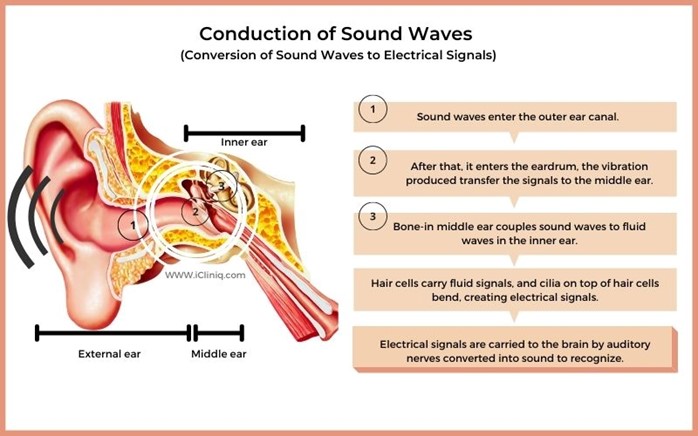A client asks the nurse to explain what metabolic syndrome is. Which of the following will the nurse include in education about risk factors for this syndrome? (Select all that apply.)
Clinical obesity defined by abnormally high BMI or waist circumference
Elevated blood pressure
High triglycerides
Hypercholesterolemia
Hyperglycemia
Correct Answer : A,B,C,D,E
Choice A Reason: This is correct because clinical obesity is a risk factor for metabolic syndrome. Clinical obesity is defined by having a body mass index (BMI) of 30 or higher, or a waist circumference of more than 40 inches for men or 35 inches for women. Obesity can increase insulin resistance and inflammation, which can lead to metabolic syndrome.
Choice B Reason: This is correct because elevated blood pressure is a risk factor for metabolic syndrome. Elevated blood pressure is defined by having a systolic blood pressure of 130 mm Hg or higher, or a diastolic blood pressure of 85 mm Hg or higher. High blood pressure can damage the blood vessels and increase the risk of cardiovascular disease, which is associated with metabolic syndrome.
Choice C Reason: This is correct because high triglycerides are a risk factor for metabolic syndrome. Triglycerides are a type of fat that circulates in the blood and provides energy for the cells. High triglycerides are defined by having a level of 150 mg/dL or higher. High triglycerides can increase the risk of fatty liver disease and pancreatitis, which are related to metabolic syndrome.
Choice D Reason: This is correct because hypercholesterolemia is a risk factor for metabolic syndrome. Hypercholesterolemia is defined by having a total cholesterol level of 200 mg/dL or higher, or a low-density lipoprotein (LDL) cholesterol level of 100 mg/dL or higher. LDL cholesterol is also known as "bad" cholesterol because it can build up in the arteries and cause plaque formation and narrowing, which can lead to cardiovascular disease and metabolic syndrome.
Choice E Reason: This is correct because hyperglycemia is a risk factor for metabolic syndrome. Hyperglycemia is defined by having a fasting blood glucose level of 100 mg/dL or higher, or a hemoglobin A1c level of 5.7% or higher. Hemoglobin A1c is a measure of average blood glucose over three months. Hyperglycemia can indicate impaired glucose metabolism and insulin resistance, which are hallmarks of metabolic syndrome.
Nursing Test Bank
Naxlex Comprehensive Predictor Exams
Related Questions
Correct Answer is C
Explanation
Choice A reason: This is incorrect because using sign language when communicating with the client is not an appropriate action for the nurse to take. Sign language is a form of communication that uses hand gestures, facial expressions, and body movements. It is not a universal language and requires training and practice. The nurse should not assume that the client knows or prefers sign language unless they have indicated so.
Choice B reason: This is incorrect because speaking loudly and into the client's good ear is not an appropriate action for the nurse to take. Speaking loudly can distort the sound quality and cause discomfort or irritation to the client. Speaking into the client's good ear can also create a sense of imbalance and isolation. The nurse should speak at a normal volume and tone, and face the client directly.
Choice C reason: This is the correct answer because speaking directly to the client in a normal, clear voice is an appropriate action for the nurse to take. Speaking directly to the client can help them see the nurse's mouth movements and facial expressions, which can enhance understanding and communication. Speaking in a normal, clear voice can help convey the message clearly and respectfully.
Choice D reason: This is incorrect because sitting by the client's side and speaking very slowly is not an appropriate action for the nurse to take. Sitting by the client's side can make it difficult for them to see the nurse's face and hear their voice. Speaking very slowly can also make the message unclear and patronizing. The nurse should sit in front of the client and speak at a normal pace.

Correct Answer is ["2600"]
Explanation
The total fluid prescribed is 5,200 mL over 24 hours. We need to calculate how much fluid the client will receive in the first 8 hours.
Step-by-Step Calculation:
Step 1: Determine how much fluid is given in the first 8 hours. The rule is that half of the total fluid is administered in the first 8 hours.
- Total fluid = 5,200 mL.
- Fluid for the first 8 hours = Total fluid ÷ 2.
Write it out:
5,200 ÷ 2 = 2,600.
Result: 2,600 mL.
Whether you are a student looking to ace your exams or a practicing nurse seeking to enhance your expertise , our nursing education contents will empower you with the confidence and competence to make a difference in the lives of patients and become a respected leader in the healthcare field.
Visit Naxlex, invest in your future and unlock endless possibilities with our unparalleled nursing education contents today
Report Wrong Answer on the Current Question
Do you disagree with the answer? If yes, what is your expected answer? Explain.
Kindly be descriptive with the issue you are facing.
